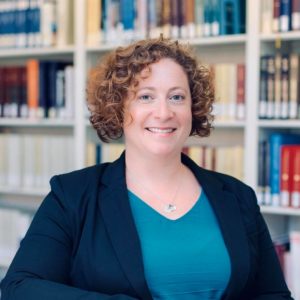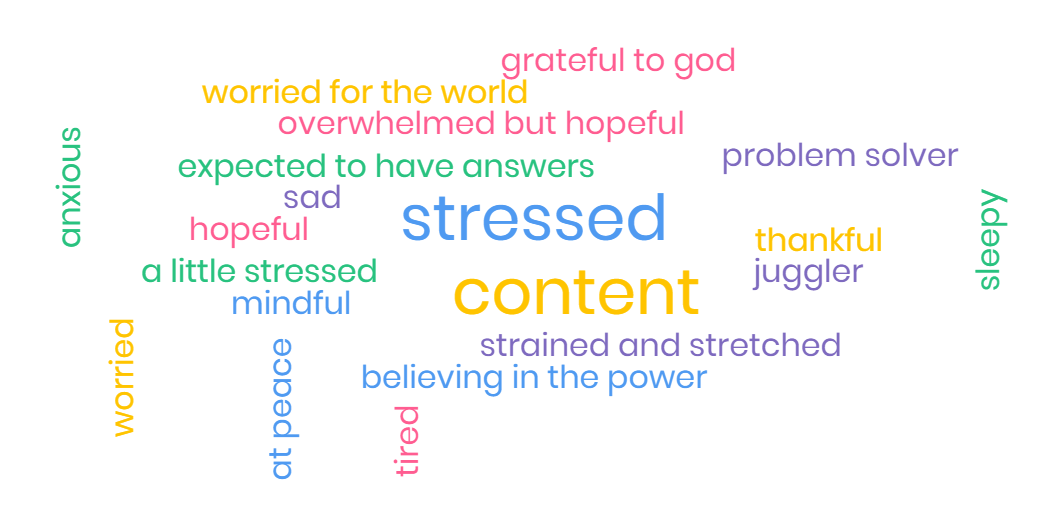
Four Questions
The most important pedagogical practice I have engaged in during this time of pandemic stress and isolation is making sure to check in with my students.
At the beginning of every class, after we pray, I poll the students to find out how they are doing. Responses are anonymous (though have I have had many students email me to follow up about their answer, letting me know which responses were theirs). This honors the humanity of my students and gives me the opportunity to know what is in the Zoom room with us when we are trying to learn together. This also gives the whole class the opportunity to know how we can pray for the members of our learning community.
My school moved to online learning the week of March 16. Each week I have asked different questions and offered different ways to engage while also offering space for how my students are coping. I have maintained four core questions: How am I doing in general? How am I feeling about my work in this course? What else do I need my professor to know? How am I feeling? This past week, I added a question about how they were feeling about the end of the semester. The week after Easter I asked students to share where they had seen signs of hope and new life. I have shared with my students that the most important thing right now is their mental, spiritual, and physical health. Not their schoolwork, not even for my class (I’m teaching my favorite class this semester and everything!). Taking time at the beginning of each synchronous learning time shows them that I am serious about that.
When I ask students how they are doing in general, I have a multiple-choice response and one of them is “falling apart, like the world around me.” As their professor, I need to know when I have students who feel like they are falling apart. Not only do I take the opportunity to remind them that I am praying for them, but I also remind them that this is a perfectly normal response to a highly stressful situation and encourage them to seek help. I also get to remind myself that talking about course material might matter very little to the students who share that they feel this way.
When I ask students how they feel about the course itself, I have another multiple-choice response option. One of those responses is “Help! I’m drowning!” I need to know when students feel like they are drowning in coursework. Just like me, my students are strapped for time to get work done and may often get interrupted by family members (including small children). Just like me, they may experience brain fog sometimes. When I know students feel like they are drowning, I can offer them a lifeboat. Do they need me to cut out some readings? Extend a deadline? Read a draft because they can’t tell if they are on the right track? Right now, my policy is that I will be as flexible as I possibly can with students; but if I don’t know that they need flexibility, I can’t offer it.
When I ask students how they are feeling, I receive answers in the form of a word cloud. Each class these word clouds are profound, real, and heartbreaking. They are works of art reminding us of our humanity and the humanity of our peers in the classroom. We are tired, anxious, and stressed. We are worried and grateful. We are excited about graduating and devastated that it won’t be happening like we’ve been dreaming of for years. We are happy. We are sad.
In a normal semester at the beginning of class, I ask students “How are you all doing today?” I usually receive short answers that are varying shades of “fine.” But this is not a normal semester, and we need more opportunities to check in and care about each other. We need to know that we are valued for more than our productive output in the classroom. What I am teaching my students through this practice is that I care about them as people, and I care about and honor whatever they are going through. As a seminary professor, this lesson is at least as important as the pedagogical content of my courses.


Leave a Reply